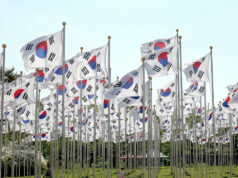Inflation likely edged up in August

THE inflation likely edged higher in August, as food prices and transportation costs rose when lockdown restrictions were brought back for two weeks earlier in the month, analysts said.
A BusinessWorld poll of 16 economists held last week yielded a median estimate of 2.8%, settling within the middle of the 2.5% to 3.3% forecast range provided by the Bangko Sentral ng Pilipinas (BSP) for the month.
If realized, the median estimate will be slightly faster than the 2.7% seen in July as well as the 1.7% logged in August 2019. However, it will still be within the 2-4% target by the central bank for this year.
So far, headline inflation averaged 2.5% in the first seven months of 2020. The BSP expects inflation to average 2.6% this year.
The Philippine Statistics Authority will report the official August inflation data on Friday (Sept. 4).
Analysts said the uptick in commodity prices was driven mainly by food and transport costs.
“Food prices remain supportive of overall inflation, and an increase in transport costs also likely contributes to some headline gains,” Jessie Lu, an economist from Continuum Economics, said in an e-mail.
Other commodities that also saw higher prices include communication and health expenses, said John Paolo R. Rivera, an economist from the Asian Institute of Management.
The return of the modified enhanced community quarantine (MECQ) in the first two weeks of August likely contributed to higher commodity prices, according to UnionBank of the Philippines, Inc. Chief Economist Ruben Carlo O. Asuncion.
“Note that gas prices have also increased during the month a number of times, as global oil prices notched upticks,” he added.
Global oil prices rose in August as demand improved on easing lockdown restrictions in most countries. Data from the Energy department showed that since Aug. 11, domestic oil companies have raised the price of gasoline by a total of P0.96 per liter.
During the strict MECQ, trains, buses, jeepneys, taxis, and transport network vehicle services were not allowed to operate. Tricycles were operating depending on local government rules and companies were encouraged to provide shuttle services for employees.
Meanwhile, ING Bank N.V. Manila Senior Economist Nicholas Antonio T. Mapa expects August inflation to settle at 2.7%, unchanged from July, with price gains likely fueled by transport fares.
“All other items will likely have subdued price trends given depressed demand due to the economic recession,” he said.
The country plunged into a recession after the economy contracted by 16.5% in the second quarter, as the lockdown measures hurt economic activity.
Most analysts expect inflation to tick up, but said the BSP remains armed with bullets to accommodate easing when needed to aid the economy’s recovery from the pandemic.
“We still hold the view that the risks are skewed to see lower rates and since inflation is not a factor due to the relatively benign price pressures at the moment,” Sunlife Financial economist Patrick M. Ella said.
The next rate cut could come as soon as the next meeting, said Alex Holmes, an economist from Capital Economics, noting the within-target inflation trajectory “would provide no impediment for further easing.”
Given the worst-than-expected impact of the virus, the BSP is even likely to continue being accommodative and may delay any notable policy normalization to 2022, said Ms. Lu.
On the other hand, Rizal Commercial Banking Corp. Chief Economist Michael L. Ricafort said the central bank may not go for further rate cuts as inflation is already outpacing the key policy rate of 2.25%.
The central bank maintained the overnight reverse repurchase, lending, and deposit rates at record lows of 2.25%, 2.75% and 1.75%, respectively in its Aug. 20 policy review. It cited the continued benign inflation outlook as well as some early signs of economic recovery as reasons for the “prudent pause.”
Before this, the central bank had already slashed rates by 175 basis points this year.
BSP Governor Benjamin E. Diokno has said the BSP may keep its monetary stance in the next few quarters as their previous actions were already anticipatory and as they wait for the market to fully digest what they have done so far. He, however, assured the BSP can do more “if warranted.”
The Monetary Board will have its fifth policy review this year on Oct. 1. — Luz Wendy T. Noble




